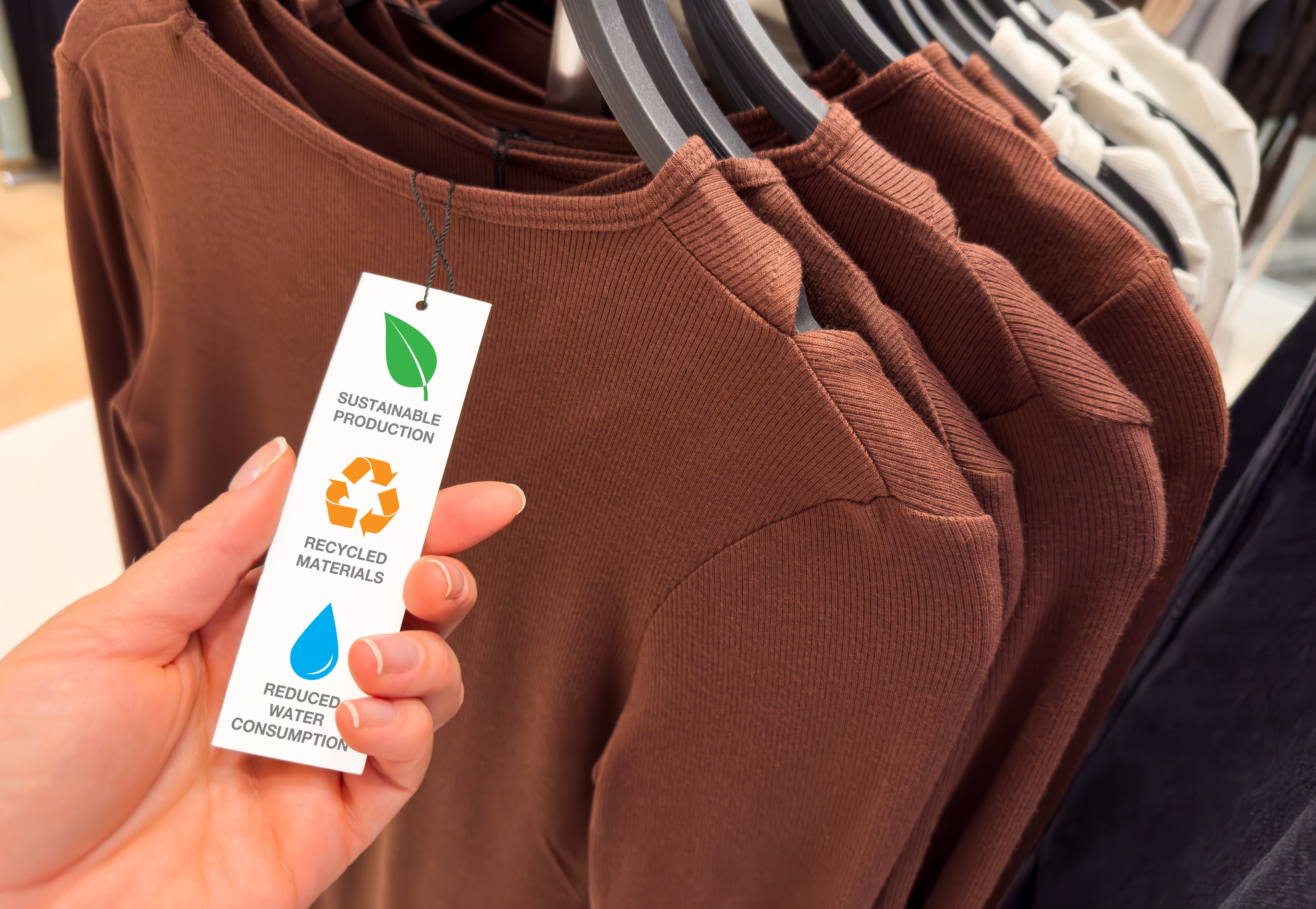Stay Ahead of the Contour by Checking Out Innovative Style Fads
In a market as vibrant as style, remaining in advance involves more than just adhering to present trends-- it demands an exploration of technology. The convergence of technology and style declares a brand-new age of consumer interaction.

Accepting Smart Textiles
In the last few years, the fashion market has experienced a transformative shift with the combination of clever textiles, an advanced technology that mixes technology with material. This advancement represents not just a fusion of visual appeals and capability yet additionally a substantial jump in the direction of sustainability and personalization in vogue. Smart fabrics, also referred to as e-textiles, embed advanced electronic devices such as sensing units and conductive strings within the fabric, enabling garments to interact with the user or the atmosphere.
These textiles are made to monitor physical specifications, such as heart rate or body temperature, giving real-time health and wellness analytics. Past wellness applications, clever textiles are likewise being made use of for flexible clothes, which can transform shade or pattern in reaction to environmental stimuli, thus using a vibrant style experience.
Additionally, the development of energy-harvesting textiles that produce power from activity or sunshine is leading the way for self-sufficient wearable innovation. This advancement is interesting environmentally aware consumers and developers intending to reduce the environmental impact of fashion. As r & d in this area advance, smart textiles are anticipated to become progressively widespread, improving the landscape of modern-day style with their multifunctional capabilities.
The Surge of 3D Printing
Changing the production landscape, 3D printing has arised as a game-changer in the garment industry. This advanced innovation has made it possible for designers to push the borders of creativity, producing elaborate and tailored garments that were previously unbelievable. By leveraging electronic design and additive manufacturing, 3D printing assists in the development of intricate geometries and patterns, permitting developers to try out new appearances and structures.
A noteworthy advantage of 3D printing in vogue is its ability to generate on-demand, reducing waste and lowering supply requirements. This efficiency not only optimizes manufacturing procedures yet likewise enables for rapid prototyping, allowing developers to bring their visions to life in a much shorter timeframe. Moreover, 3D printing supports personalization somewhat unmatched by conventional approaches, using customized fits and one-of-a-kind layouts tailored to specific consumer preferences.
The rise of 3D printing has actually also democratized style, making it obtainable to arising developers that can now make high-quality pieces without substantial economic investment in conventional production facilities. As technology remains to advancement, the style industry is positioned to harness the full potential of 3D printing, exploring new materials and strategies that will most certainly redefine just how fashion is developed and generated.
Sustainable Style Advancements
As the garment industry faces the pressing requirement for ecological obligation, sustainable style advancements have emerged at the center of transformative modification. The growing awareness of eco-friendly influence has actually fueled a change in the direction of more eco-conscious methods and products. Brand names and designers are currently focusing on sustainability, integrating methods that reduce waste and reduce carbon impacts.
One substantial advancement is the increase of round style, which highlights recycling and upcycling to expand the lifecycle of garments. This approach not only minimizes waste however also motivates consumers to embrace a much more mindful strategy to apparel usage.
One more advancement exists in the fostering of innovative dyeing techniques that use waterless processes or natural dyes, consequently decreasing the substantial amounts of internet water and chemicals traditionally used in fabric dyeing. Moreover, innovations in biotechnology have resulted in the creation of lab-grown leather and materials, using environmentally pleasant and cruelty-free alternatives to traditional materials. With these introducing initiatives, the fashion business is making meaningful strides towards an extra sustainable future.

Tech-Integrated Apparel
Tech-integrated apparel stands for a cutting-edge blend of style and modern technology, reshaping just how people connect with their clothes. This cutting-edge domain is marked by the inclusion of clever fabrics and embedded digital parts, enhancing both capability and visual allure. From fitness trackers embedded in sportswear to warmed jackets managed by means of smart device applications, tech-integrated clothing offers consumers extraordinary find more information benefit and versatility.
Introducing brands are driving this pattern, concentrating on producing garments that reply to environmental stimuli or customer commands. As an example, some garments can alter color or pattern in feedback to temperature changes, while others incorporate biometric sensors to keep an eye on health and wellness metrics like heart rate or anxiety levels. The seamless integration of innovation into textiles additionally encompasses ecological sustainability, with initiatives to develop self-cleaning textiles or garments that adapt to climate condition, thus lessening the requirement for numerous layers.
Moreover, the development of wearable technology is not just limited to clothing but reaches accessories like watches and eyeglasses, more expanding the range of tech-integrated style. As the sector remains to innovate, the capacity for customization and personalization in clothing grows, supplying customers special, tech-enhanced fashion experiences that satisfy their private needs and preferences.
Future of Virtual Fashion
In recent years, the future of online fashion has emerged as a transformative force within the market, leveraging improvements in electronic modern technology to redefine how style is developed, experienced, and taken in. By integrating enhanced truth (AR), virtual truth (VR), and 3D design tools, developers can now craft interactive and immersive experiences that go beyond traditional fashion boundaries. Digital fashion permits for the development of garments that exist solely in electronic settings, offering limitless opportunities for development without the restrictions of physical production.
This digital change not only presents chances for creative expression yet also addresses sustainability concerns fundamental in typical style techniques. Cape Town Sustainable Fashion. By removing the requirement for physical resources, online fashion lowers waste and decreases carbon impacts. In addition, the surge of virtual style straightens with the raising customer demand for unique and customized experiences, click over here now as digital garments can be personalized and tailored to specific choices with convenience

Conclusion
The garment industry's future depend on the assimilation of cutting-edge innovations and sustainable techniques - Cape Town Sustainable Fashion. Smart textiles and tech-integrated apparel are enhancing capability, while 3D printing uses opportunities for customization and waste decrease. Sustainable style, with round approaches and environment-friendly materials, shows a commitment to ecological stewardship. Furthermore, digital fashion is positioned to redefine consumer communications. Adapting to these patterns is important for brand names seeking to continue to be relevant and affordable in this rapidly advancing landscape.
In recent years, the fashion market has actually seen a transformative shift with the assimilation of wise textiles, an advanced advancement that mixes modern technology with fabric.As the fashion market grapples with the pressing requirement for ecological duty, lasting fashion developments have emerged at the leading edge of transformative adjustment.In current years, the future of digital style has actually arised as a transformative pressure within the sector, leveraging advancements in digital technology to redefine how fashion is developed, experienced, and eaten. The surge of digital style straightens with the increasing consumer demand for customized and distinct experiences, as online garments can be personalized and tailored to private choices with simplicity.
The fashion market's future lies in the combination of sustainable practices and innovative modern technologies.